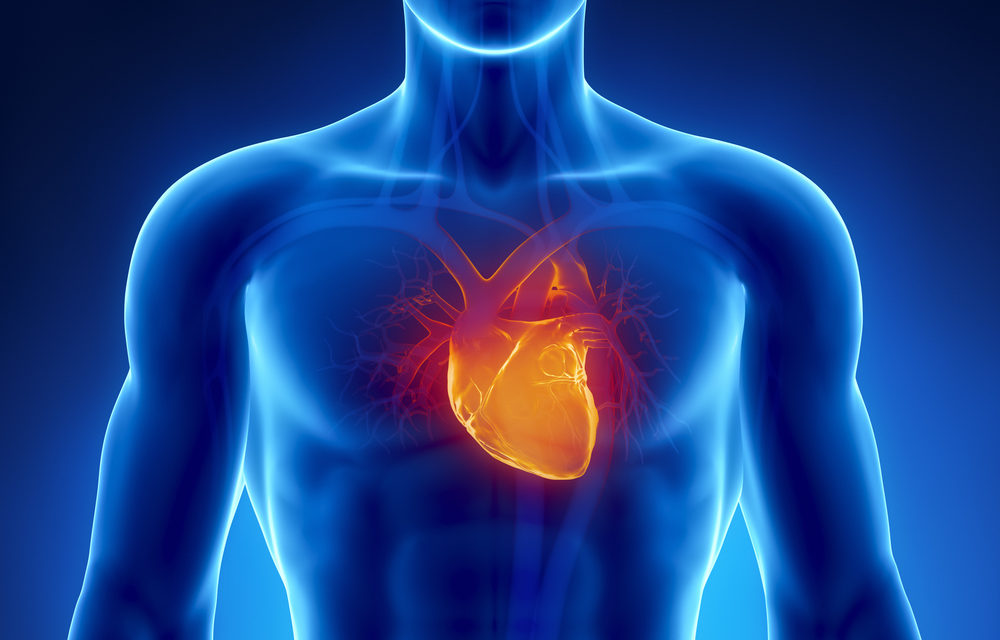
It's common to think of your heart as an insulated powerhouse though recent medical research tells us that our hearts are in fact linked with our brains and impacted by the environment around us. Your cardiovascular system reacts to air and noise pollution, for instance. Sudden shock or loss can stop your heart. Science now tells us that pollution, shock, ongoing stress and emotional health all carry potentially deadly cardiovascular impact. Is it time to update your heart health strategy?
1 in 3 Americans have heart or blood vessel disease according to the Environmental Protection Agency (EPA) and many people aren't yet aware of their condition. Why is an environmental agency tracking cardiac statistics? Because air pollution generates particulate matter that's well known for causing respiratory illness but less knows to be behind heart attacks, blood clots, strokes, heart rhythm abnormalities and heart failure. Do you live on a busy road? Are you near a railroad, port or industry? Are you exposed to summer fires? All these areas produce high particulate matter with the ability to cause heart and cardiovascular problems over time. Air Quality warnings are not just for people with frail health we all benefit by knowing when we're in danger from particulate matter. Tips for protecting yourself: workout in the early morning not midday, set your car vents to recirculated air, buy an indoor air purifier, and check the Air Quality index in your area.
The American Heart association tells us that 2,150 Americans die EACH DAY of cardiovascular disease. You may not blame screaming jets, loud tires, ongoing construction, workplace machinery and deafening industry for that statistic yet a 7 year research program in London registered increased blood pressure and strokes in neighborhoods exposed to ongoing noise reaching 60 decibels. For context, traffic generates 85 decibels, factory machinery can spike at 105, jet engine takeoffs split 140. How does noise cause heart problems? The American College of Cardiology profiled a more recent study reviewing all the research on links between cardiovascular health and loud noise noting that "... noise is associated with oxidative stress, vascular dysfunction, autonomic imbalance and metabolic abnormalities." Sleeping in noise may be damaging even though we don't hear it. A study of 144,000 in Norway concluded, "...long term exposure to noise can increase the risk of heart disease both biologically and psychologically. While noise exposure appears to have a similar biological effect as air pollution in terms of blood chemistry changes, it can also cause long-term psychological stress due to, for example, lack of sleep and the production of stress hormones – both already known to increase cardiovascular risk. Tips for reducing noise: wear noise cancelling headphones or ear plugs, reduce your environmental noise exposures where possible and help your city to enact noise ordinances.
Stress hormones secreted in our body are well known for threatening health. Most often stress affects our biology over time. However, sudden surges of stress caused by shock or dramatic emotional encounters can instantly reduce the flow of blood into your heart and create the sensation of heart attack known as Takotsubo cardiomyopathy or Broken Heart Syndrome. Women 58-75 are most likely to develop this generally temporary and manageable condition however 20% will die from the experience thus the phrase "she died of a broken heart." Tips for avoiding Broken Heart Syndrome: Reach out to friends if you receive shocking news and seek help if you're having trouble with transitions or burdens in your life.
“The head-heart connection should be on everyone’s radar,” said Barry Jacobs, Psy.D., a clinical psychologist and director of Behavioral Sciences at the Crozer-Keystone Family Medicine Residency Program in Springfield, Pa. “It’s not just being unhappy. It’s having biochemical changes that predispose people to have other health problems, including heart problems.” Writing in the Harvard Health blog Dr. Srini Pillay explains the connection, "In fact, if you have any type of heart disease, any strong emotion such as anger may also cause severe and fatal irregular heart rhythms. Expressions like “died from fright” and “worried to death” are not just hyperbole — they are physiologic possibilities. Furthermore, when patients with newly diagnosed heart disease become depressed, that depression increases the risk that a harmful heart-related event will occur within that year."
The strong link between emotional states and heart health is the focus of a Cardiac Psychologist. While the field is geared toward ensuring that patients with heart disease avoid a second heart event it also informs those of us who haven't yet had heart trouble. Everyone experiences emotional spikes and worries acknowledges Edward Suarez of Duke University School of Medicine, "...but there are individuals whose constant negative emotions sort of re-calibrate the way their system responds – it doesn't calm down; it keeps going." The fight flight stress responses triggered by those emotions can continue to release putting great stress on the cardiovascular system. Bottom line? The way we manage stress and emotions impacts the health of our cardiovascular system. Tips for head-heart support: consider mindfulness meditation, seek professional support for difficult emotions or depression, build a support network.
We've all learned that our lifestyle, such as what we eat and how we exercise, holds keys to cardiovascular health. Any current heart health plan however needs to consider the impacts of mental health and environmental factors. Buy whole foods and walk daily, yes, but be sure to shield your heart from excessive noise and high levels of particulate matter in the air. Prioritize your mental health by belonging to a social network and accessing help during difficult transitions.

